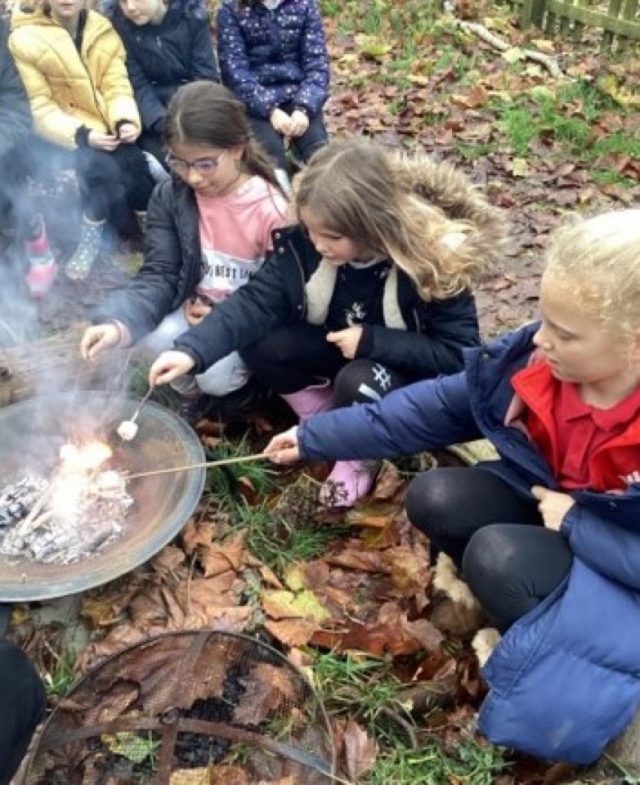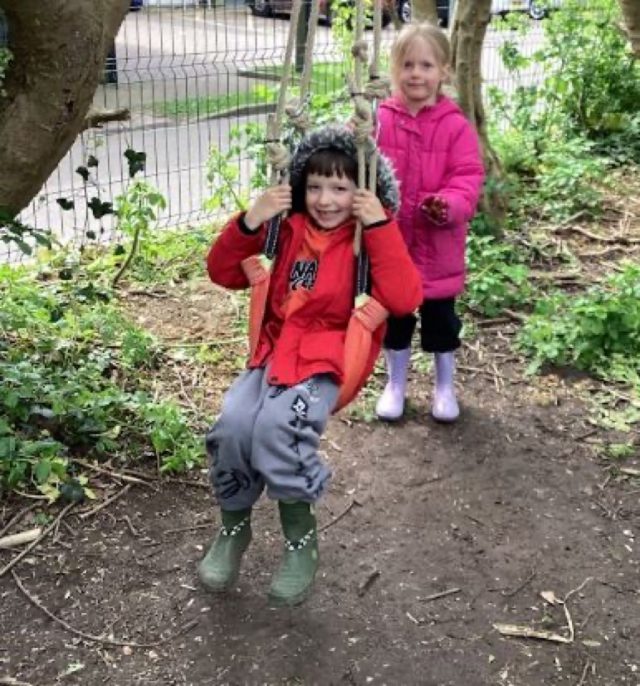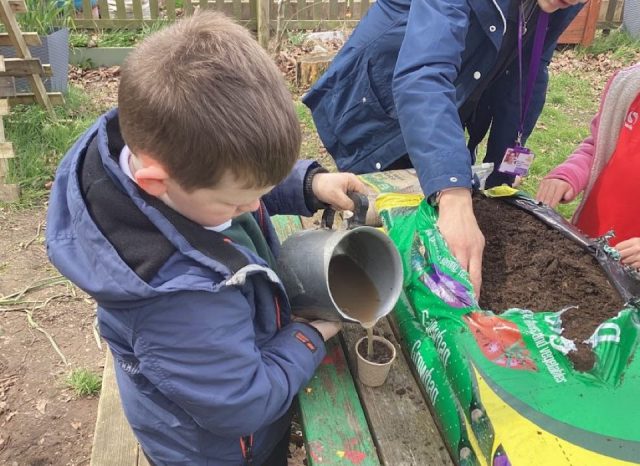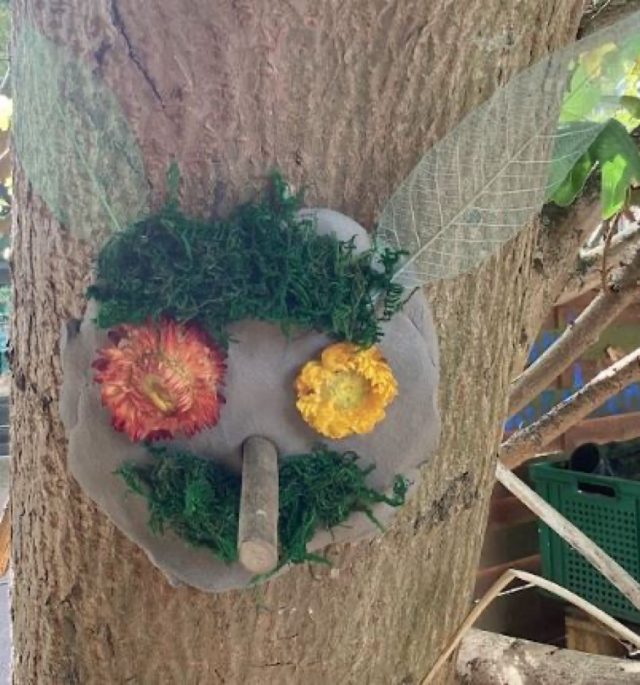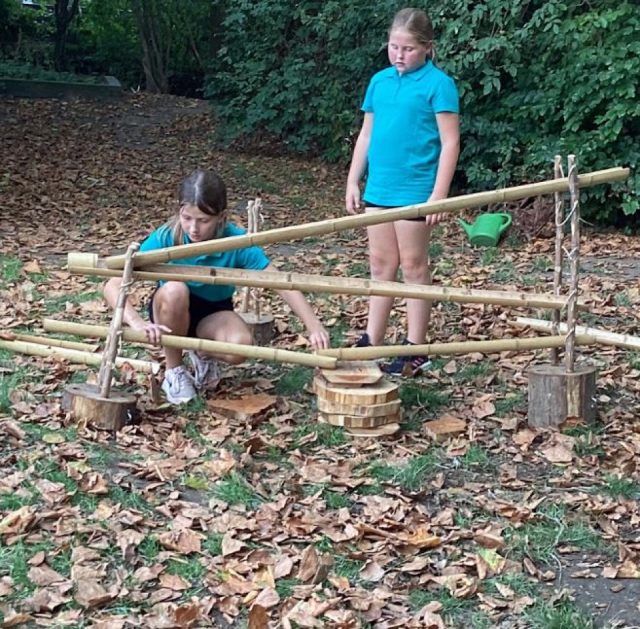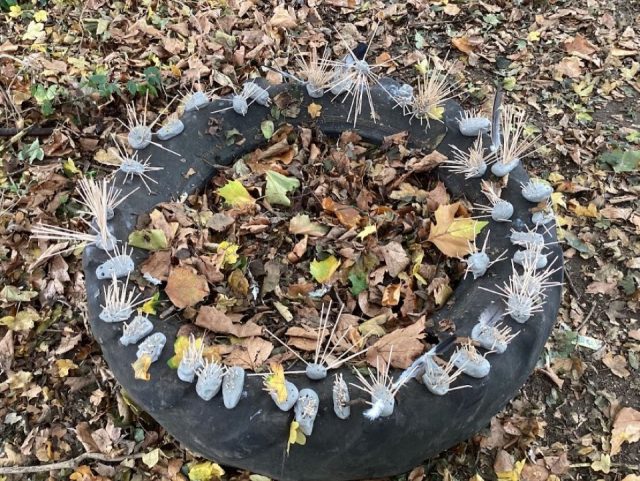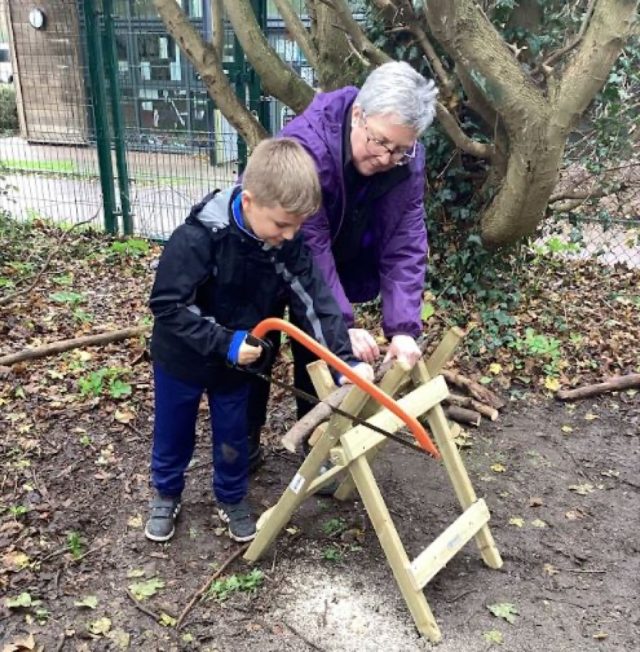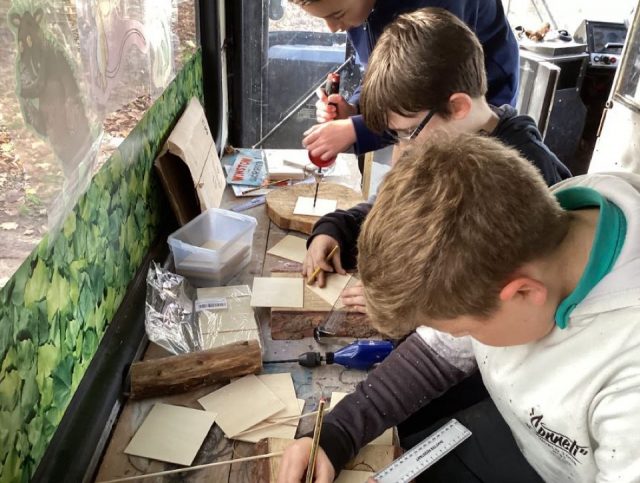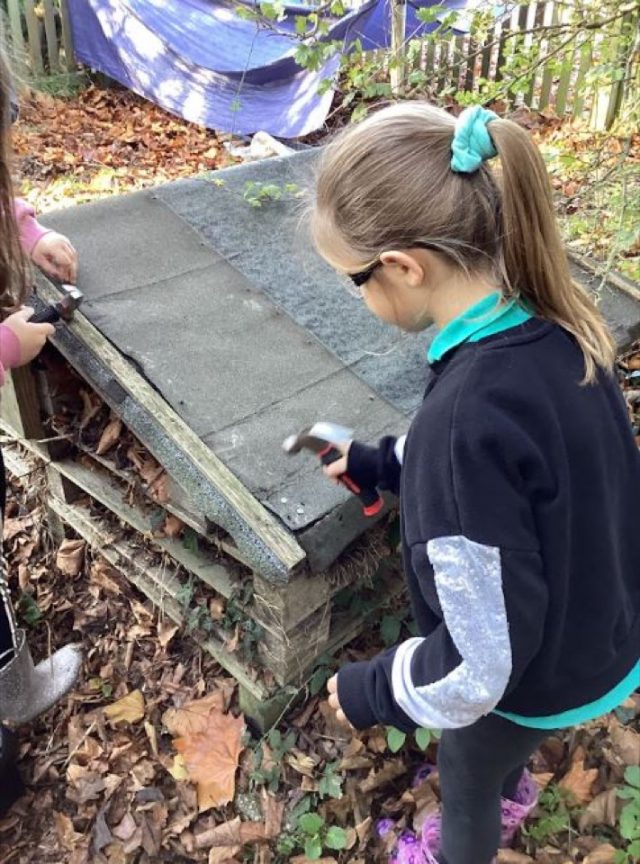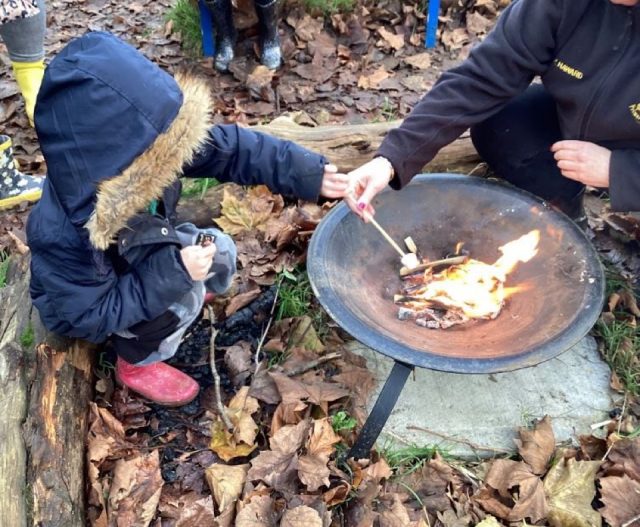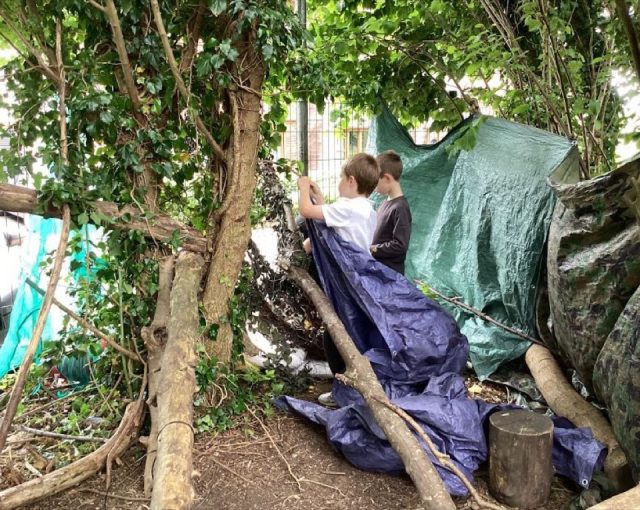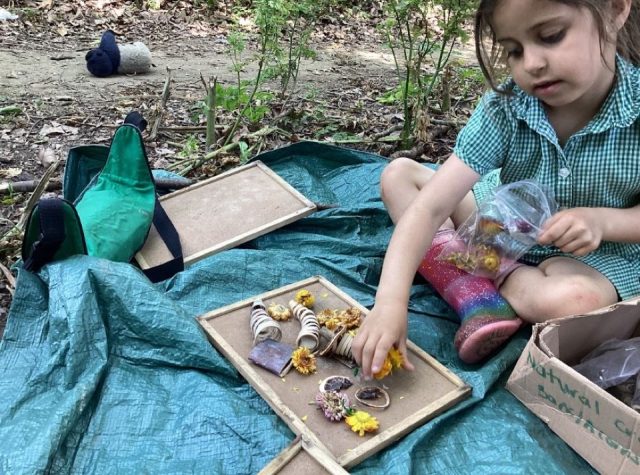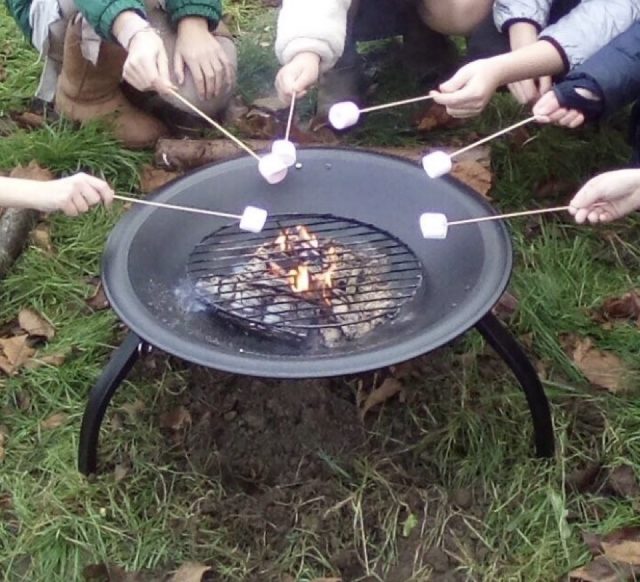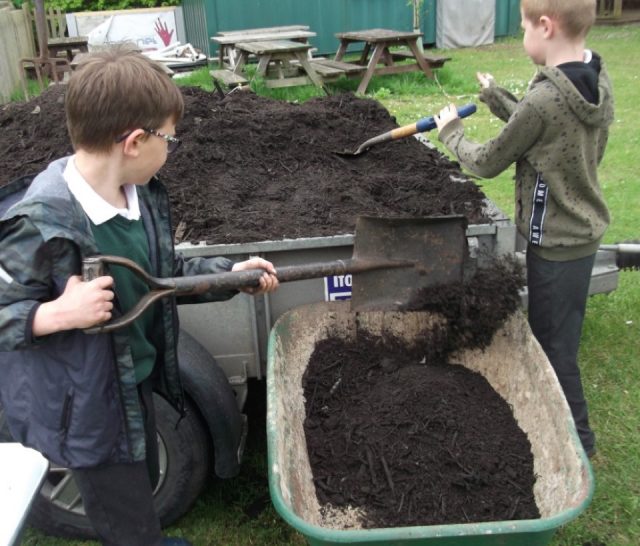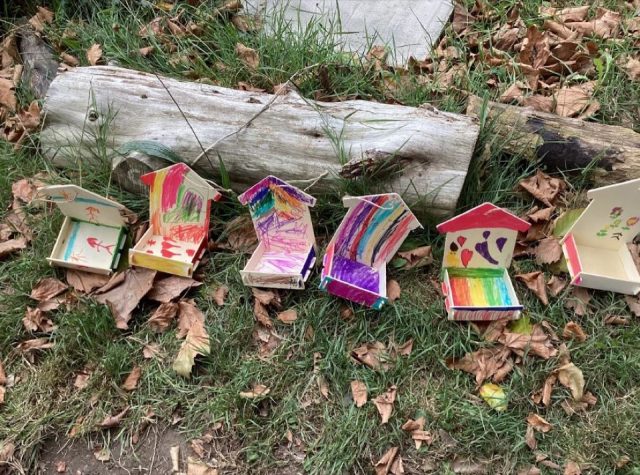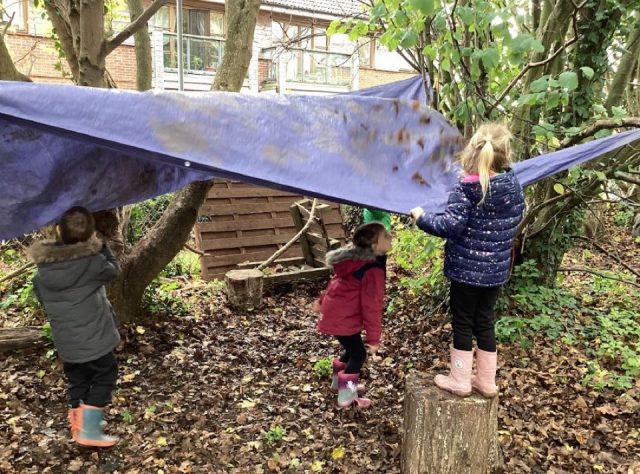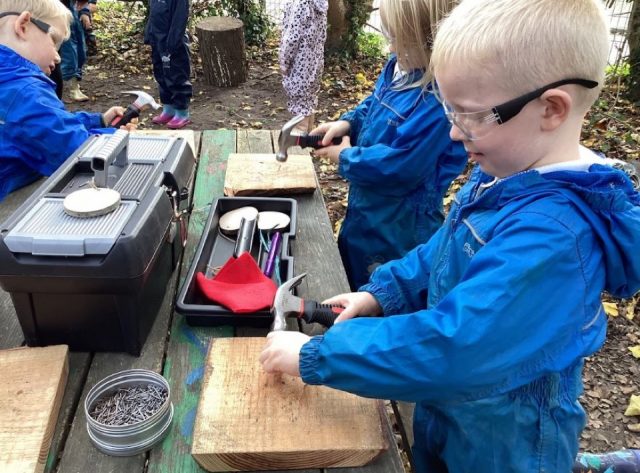“Nature is a tool to get children to experience not just the wider world but themselves”
– Steven Moss
Intent
Forest School is an entitlement for all of our pupils and accessible to all.
At Kessingland Church of England Primary Academy, we believe, in the Forest School ethos. This means that everybody should have access to the natural environment or woodland to explore and to engage and discover through self-directed play. We provide opportunities to develop confidence, self-esteem, communication and confidence in themselves, others and the natural world in a considered risk appropriate way. Children play, learn boundaries, work with tools and develop an understanding of the natural world.
Implementation
To ensure high standards of teaching and learning in Forest School, our curriculum is progressive throughout the whole school.
Key Concepts:
- Rules for outdoors and attitude to risk
- Problem solving
- Conflict resolution
- Personal, Social and Emotional wellbeing
Domains of Knowledge:
- Exploration
- Building dens, shelters, structures
- Woodland and traditional crafts
- Playing team/group games (including sensory and tracking games)
- Studying wildlife/fauna & flora
- Rope and string work
- Story time & developing stories and meeting imaginary characters
- Fire lighting, using a storm kettle, cooking on an open fire
- Tool use – knives, saws, mallets
EYFS, KS1 and KS2:
Forest School is an inspirational process that offers all learners regular opportunities to achieve and develop confidence and self-esteem through hands-on learning experiences in a woodland or a natural environment with trees. It is important we see the development of skills achieved at forest school transition into classroom based learning. To establish this, we incorporate curriculum objectives into part of the forest school activities.
At Kessingland Church of England Primary Academy we want our pupils to:
- Develop personal and social skills.
- Work through practical problems and challenges.
- Use tools to create, build or manage.
- Discover how they learn best.
- Pursue knowledge that interests them.
- Learn how to establish a growth mind-set.
- Build their confidence in decision making and evaluating risk.
- Develop their practical skills.
- Understand the benefits of a balanced and healthy lifestyle.
- Explore connections between humans, wildlife and the earth.
- Regularly experience achievement and success.
- Reflect on their learning and experiences.
- Develop language and communication skills.
- Improve their fine and gross motor skills.
- Improve their concentration skills
Impact
The Forest School curriculum builds towards three end points that describe what we want our pupils to achieve by the end of Year Six:
End Point 1: Foster a long-lasting relationship between themselves and the natural world.
End Point 2: Develop resilience, confidence and independence as part of skills inherent to life outside of forest school.
End Point 3: Take supported risks appropriate to the environment and themselves, developing an awareness of when risk can be taken.
Forest School is assessed in two distinct ways:
- Metacognitive learning tasks which give pupils the opportunity to talk about ideas and give their opinion. Using subject-specific vocabulary, children give each other feedback on their own and others experiences.
Ongoing observation and an appraisal of pupils’ engagement in each session. Lessons are then planned in accordance with age and developing experience and ability.



